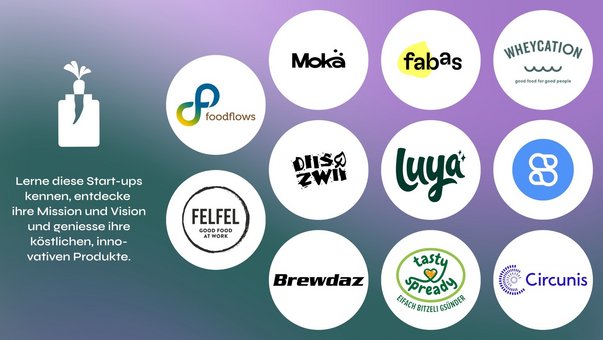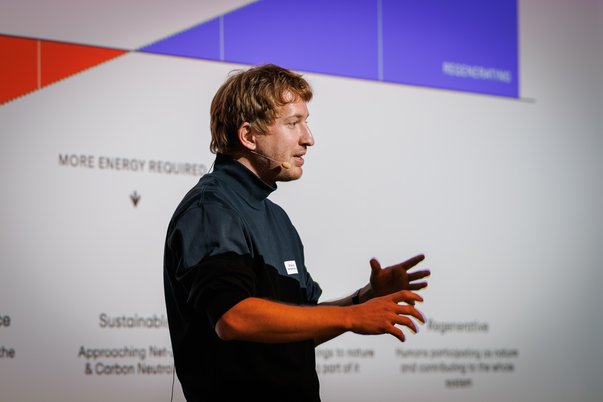
Translated with DeepL
What if the secret to a long life lay not in medicine, but in everyday life? In what we eat, how we work and how we treat each other?
It was precisely this idea that characterised the evening event on the topic of longevity. Health was not understood as a goal, but as a path. A path that people, companies and entire systems shape together.
In his presentation, Dr Samuel Huber, founder of For Planet Strategy Lab, showed that healthy organisations function like living organisms. They need movement, regeneration and exchange. People have habits - organisations have routines. Longevity does not mean preserving everything, but constantly and consciously developing further. In our thinking, in our actions and in the way we create value.

In his presentation, Dr Samuel Huber, founder of For Planet Strategy Lab, shows why organisations, like living organisms, only create long-term value through movement, regeneration and exchange.
Professor David Fäh from Bern University of Applied Sciences followed on from this. He vividly demonstrated that longevity is more than just reaching old age. The decisive factor is how many of these years are spent in good health. Diet, exercise and social ties have a stronger effect than genes and the greatest leverage often lies in the small habits of everyday life.
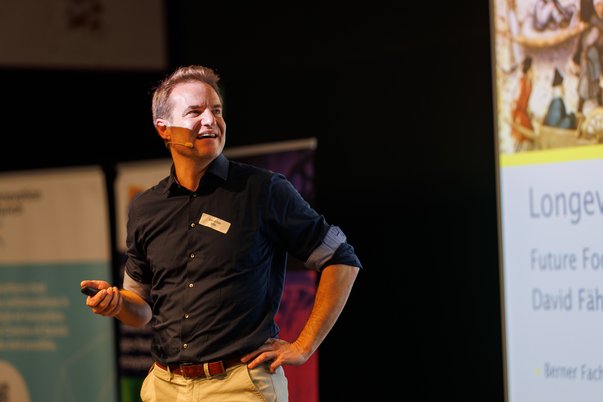
Professor David Fäh, Bern University of Applied Sciences, makes it clear that longevity does not just mean living to a ripe old age, but as many healthy years as possible - influenced above all by diet, exercise and social ties.
Three start-ups demonstrated how research and practice can be combined in the pitch session:
🥦 Luya Foods utilises by-products from tofu production and transforms them into digestible, tasty, protein-rich foods through fermentation.
wheycation uses whey as a resource for functional products that promote energy, regeneration and well-being.
🥕 Tasty Spready focuses on plant-based spreads made from local ingredients and fifty per cent less sugar. Healthy, natural and full of flavour.
The young companies impressively demonstrated how sustainability, innovation and enjoyment can be combined. Their product ideas inspire consumers and prove it: Healthy eating is not a trend, but part of a sustainable lifestyle.
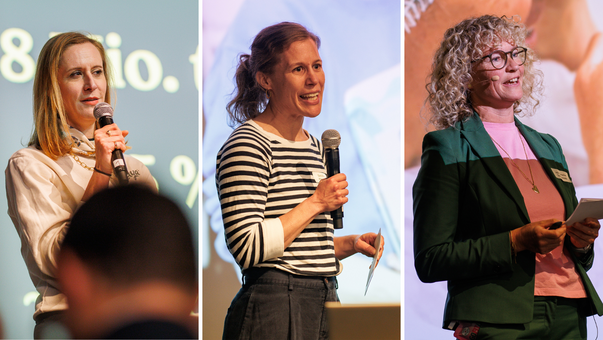
The three speakers in the pitch session: Nina Schaller, Luya Foods; Doris Erne, Wheycation; Anita Limacher, Tasty Spready. They presented their approaches for a healthy and resource-saving diet of the future.
In the final Q&A session, Dr Raphael Gugerli(Felfel) and Jacqueline Seiler(Diiszwii) discussed healthy eating in everyday working life and responsible entrepreneurship.
Both emphasised that enjoyment is a key to sustainable change: those who convey the joy of eating inspire healthier behaviour in the long term. For employees and customers alike.
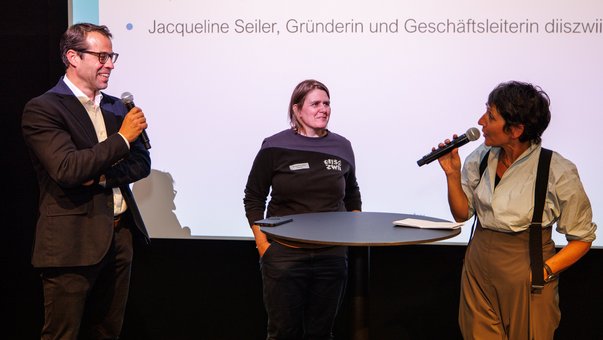
Talking about healthy work cultures: presenter Monika Schärer with Raphael Gugerli (Felfel) and Jacqueline Seiler (Diiszwii). They discussed how enjoyment, routine and corporate culture can promote long-term health.
At the aperitif that followed at the Future Food Market, guests were able to sample innovative products and discuss the nutrition of the future.
The evening made it clear that longevity is more than just striving for a long life. It is an invitation to consciously shape one's own life in a holistic context in order to maintain quality of life in old age.
The event was jointly organised by three players working at the interface of science, innovation and business:
Swiss Food Research is Switzerland's innovation network for tomorrow's agricultural and food systems. We support start-ups, SMEs, companies and research institutions in networking, collaborating and launching effective innovation projects.
The Economic Promotion Office supports local companies with their concerns, promotes the innovative capacity of the location, cultivates external economic relations and assists with relocations.
The SATW is the largest network of experts in the field of technical sciences in Switzerland and is in contact with the highest Swiss bodies for science, politics and industry. The network consists of elected individual members, member organisations and experts.
